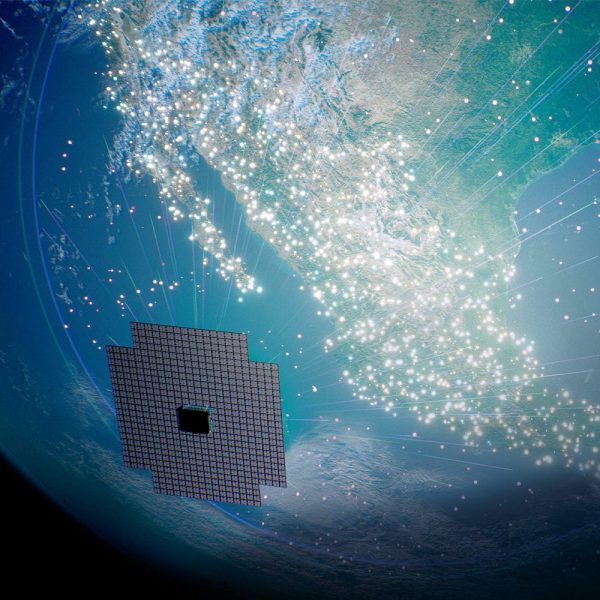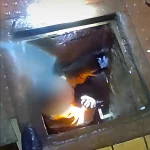Ofcom Prep Proposals to Authorise Using Satellites to Deliver UK Mobile

The telecoms regulator, Ofcom, has revealed that they’re moving ahead with plans to consult on specific proposals that would authorise Direct to Device (D2D) satellite services to work in UK mobile bands (inc. MSS – Mobile-Satellite Services), which could be used to help improve mobile (4G and 5G) coverage. The proposals are planned to surface during “early 2025“.
At present a number of satellite-based broadband and communication networks are developing services that can directly connect to unmodified consumer Smartphones via regular mobile spectrum bands. Some examples of this include Starlink (Direct to Cell), OneWeb (Eutelsat) and AST SpaceMobile. In fact, some phones, like the latest iPhone series from Apple, already have a very basic emergency communication system that can work via satellite.
The problem is that the licences held by UK mobile operators to provide communications services do not currently authorise transmissions from space. The introduction of D2D services in terrestrial mobile bands would also raise a number of other issues, such as the potential for an increased risk of interference between the satellite and the ground infrastructure of the mobile operators.
Advertisement
Ofcom began looking at this in July 2024, when they published a related Call for Input. The regulator has this week revealed the outcome of that information gathering exercise, which attracted plenty of broadly supportive responses. As a result, Ofcom now “consider that there is scope for improved connectivity from the sky and space to support economic growth and enable a number of potential citizen and consumer benefits in the UK.”
However, Ofcom opted not to develop any proposals that would authorise High Altitude Platform Stations (HAPS) in the UK, which often reflect stratospheric drones or balloons that could play a role in delivering D2D type mobile services. This is largely because the regulator didn’t receive much interest, commercially or otherwise, in the idea, and that’s not too surprising as we don’t really have a need for HAPS of this type in the UK. But Ofcom kept the door open to the idea, “should we receive evidence of demand“.
Ofcom’s Statement
We plan to consult on specific proposals to authorise Direct to Device satellite services in mobile bands in the UK in early 2025. Subject to consideration of stakeholder responses and our final decisions this could enable such services to be offered to consumers later in 2025.
We plan to review our approach to MSS authorisations (including the frequencies available for IoT services) in Financial Year 2025/2026. We will also review our current authorisation of 2GHz MSS spectrum, which is due to expire in May 2027.
We will continue to engage in ongoing work in Europe on a draft ECC decision on satellite IoT emissions in Short Range Device (SRD) bands. We expect the ECC report to be finalised in July 2025 and will then consider the merits of implementing the recommendation in the UK.
In terms of D2D, Three UK also made the point that such services are often most beneficial in countries with large areas unserved by terrestrial networks. By comparison, the operator correctly noted that the UK is relatively densely populated, with 93% of the landmass covered by at least one operator (i.e. limiting the benefits of D2D to those in rural and hard-to-reach areas, or as an emergency service or back-up solution for network outages).
“In the UK, the most suitable application for D2D services would be as an emergency service, a back-up solution for network outages or offered as a premium feature for customers who want coverage in remote areas,” said Three UK’s response.
Advertisement
The operator also echoed a warning about the risk of interference between satellites and the base stations of MNOs holding the spectrum, “potentially resulting in degraded service for mobile users.” But there are always ways of avoiding such interference, and Ofcom will need to figure out the best approach as part of their efforts to develop a new authorisation proposal.
Mark is a professional technology writer, IT consultant and computer engineer from Dorset (England), he also founded ISPreview in 1999 and enjoys analysing the latest telecoms and broadband developments. Find me on X (Twitter), Mastodon, Facebook, BlueSky, Threads.net and Linkedin.
« Vodafone UK Launch Black Friday SIM Only Mobile Discounts






















































Can’t come soon enough for rural areas like mine where the SRN scheme is a total failure so far.
Just to be able to connect 5G to my phone while flying or driving through the countryside. Look forward to AST SpaceMobile and Vodafone.
Hopefully no one pays too much attention to Three’s comments as their strategies consistently provide the worst coverage of UK landmass.
It would be nice to have a choice of operators who can.